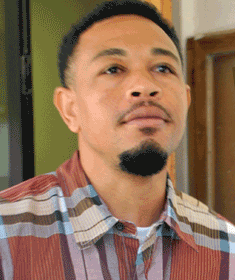BELIZE CITY, Mon. June 17, 2019– Belizean national Deon Bruce, for whom the United States Government has issued an extradition request to the Belize Government, for him to be sent to trial in Chicago, Illinois, where a grand jury has indicted him for the murders of Aaron Carter and Bryan Rodgers, which occurred in July, 2010, has been at the Belize Central Prison since January 2014, from where he has been fighting his extradition case in the court.
This afternoon, Bruce, 34, and his attorney, Anthony Sylvestre, appeared in the Court of Appeal to argue his ground of appeal that the committal warrant on which he has been sent to prison was irregular and did not fulfill the requirement of the extradition treaty.
The court has reserved its judgment, which will be handed down at a later date.
The US was represented by Deputy Solicitor General Samantha Matute-Tucker and Crown Counsel in the Solicitor General’s office, Briana Williams, who made the oral submission before the 3-member panel of Appeal Justices.
Sylvestre argued that there was no committal in Bruce’s case that complied with the 1870 Extradition Act on which the Extradition Treaty was signed between Belize and the United States.
Sylvestre further submitted that the learned trial judge erred when the order of the Chief Magistrate to extradite his client was upheld.
In her submission, Crown Counsel Williams told the court that the warrant that was signed by the then Chief Magistrate, Ann Marie Smith, has a note which says, “awaiting extradition.”
Williams further argued that committal and remand are the same.
Justice Murrio Ducille, one of the panelists, invited Williams to look at the substance of the committal warrant.
After the hearing, Sylvestre spoke to reporters, telling them that Bruce had filed an application for a writ of habeas corpus and a judicial review in 2014, after he was committed to be extradited by the Chief Magistrate.
Additionally, Sylvestre told the media that the warrant on which Bruce is being held at the prison is not valid.
Bruce’s court hearing took place before the court had decided that the warrant on which Gary Seawell was being held in prison was irregular, and not valid. This resulted in Seawell being released and his extradition case ended abruptly.
Following on the Seawell decision, Sylvestre said that they decided to make a new application for a writ of habeas corpus.
“The state, however, is saying that they can’t do that, because they have an appeal pending. We are saying that the appeal that we have pending is not a habeas corpus, but a judicial review,” Sylvestre said, adding that the issue is “whether or not we should not have brought a habeas corpus application in 2017.”
Sylvestre explained that the case is highly technical and loaded with legalese. “There are a lot of technical issues involved,” Sylvestre said.
Sylvester was asked what he argued today in court. He explained that when someone is sent to prison, there has to be a warrant which must specify what he is being sent to prison for. “In Burce’s case, this has not happened,” he said. The warrant that Bruce is being held on is not valid, Sylvestre stressed.
It was the invalid committal warrant that was signed by the Chief Magistrate that ended the extradition cases for the Seawell brothers, Gary and Mark Seawell. The court had found that the warrants on which they were held were invalid.

